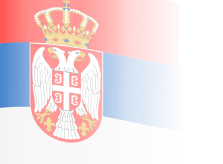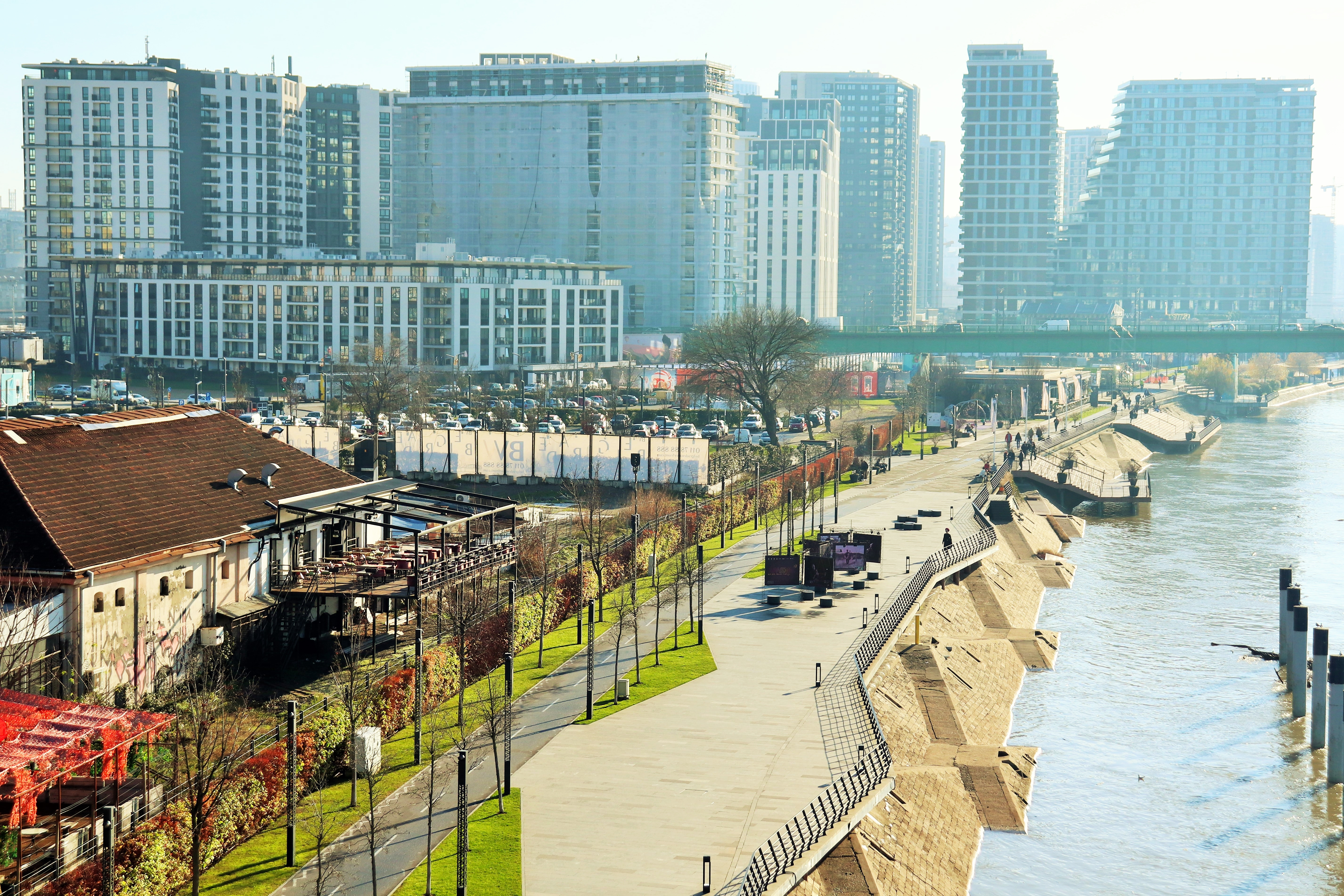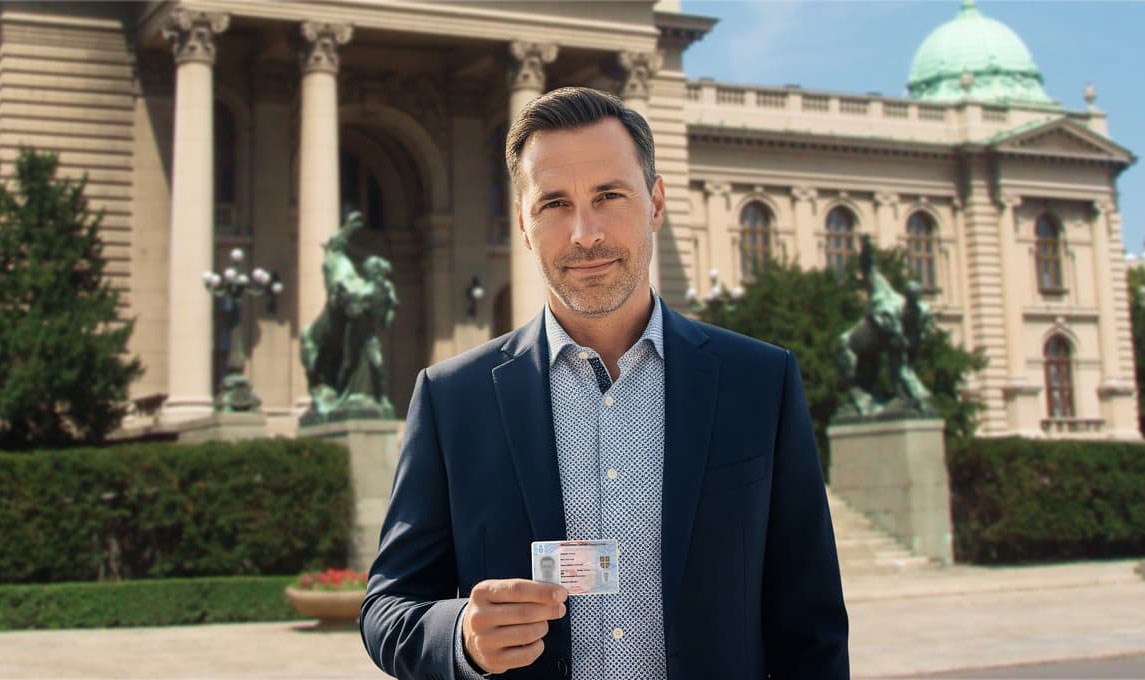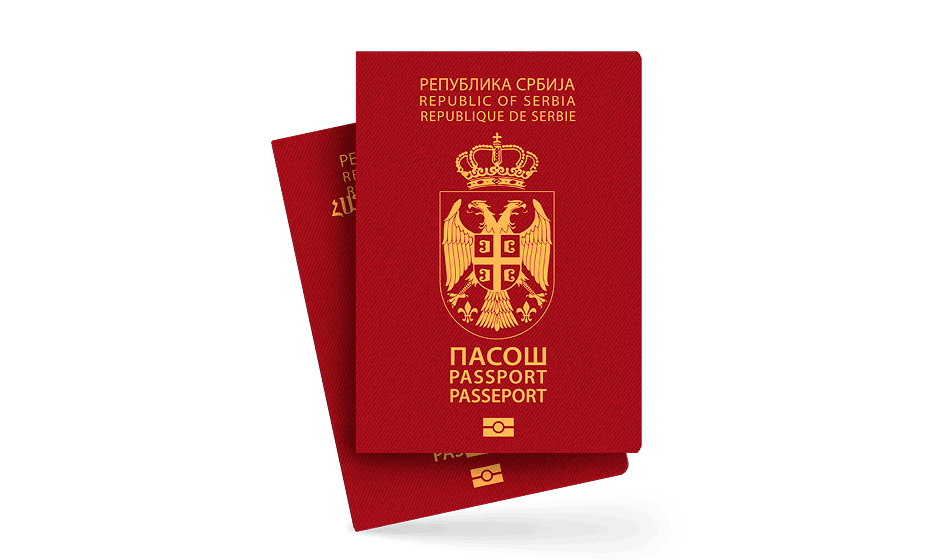A Serbian residence permit allows foreigners to legally reside in the country for a specified period (usually up to one year), gain access to healthcare and education, and enter the labor market.
It is the first step toward obtaining local citizenship, which foreigners can apply for after eight years of legal residence in the country. Serbia’s immigration policy is lenient, and its residence permit requirements are among the simplest in Europe. For example, you can apply for a permit by purchasing residential property of any value. Since Serbia is in the process of applying for EU membership, Serbian passport holders may eventually become full citizens of the European Union.
What is Boravak and what benefits does it offer?
A residence permit in Serbia is called a “privremeni boravak.” It is a holographic sticker affixed to a foreigner’s passport. The residence permit contains the applicant’s personal information, photo, reason and place of issuance, validity period, and individual number.
Holders of a Serbian boravak gain the following benefits and privileges:
- Legal residence in the country for up to one year, with the opportunity to extend the period while maintaining the same legal grounds;
- The prospect of obtaining permanent residence and a passport after the legally required period of stay;
- Access to free healthcare on an equal basis with native residents;
- The opportunity to become a local tax resident with favorable interest rates (e.g., a 10% income tax rate for individuals);
- Increased chances of obtaining a Schengen visa to visit EU countries, as well as Switzerland, Iceland, Norway, and Liechtenstein;
- Opening a bank account, depositing funds, and obtaining loans from Serbian and European banks;
- The opportunity to obtain a European driver’s license and register a car with local license plates.
Obtain a Serbian temporary residence permit with iWorld
- Personalized approach;
- Full support at all stages;
- uccessful experience working with clients from various countries.

Leave an application and get a consultation specialist
Legal grounds for obtaining a Serbian residence permit
Obtaining a Serbian temporary residence permit is a procedure regulated by the Law on Foreigners. There have been periodic amendments to this document, such as the amendments for foreign businessmen that went into effect in 2023 to encourage foreign investment. You can obtain a temporary residence permit if your planned stay in the country exceeds three months and if you meet one of the grounds listed in the aforementioned law.
Business
Foreigners who move to Serbia to start a new company or purchase an existing one can obtain a temporary residence permit. To qualify, applicants must employ at least four local residents and pay contributions to the retirement and health insurance funds.
The process of registering a sole proprietorship in Serbia is rather simple:
- Open a bank account.
- Register the company with the Business Registry Agency (Agencija za Priivredne Registre).
- Obtain the local equivalent of a taxpayer identification number (TIN)—the PIB—within five days of applying.
- Notify the relevant authorities (tax, social security, and pension funds) of the establishment of the sole proprietorship.
The Republic of Serbia does not impose any requirements regarding the location or purpose of the business for obtaining a residence permit.
Employment
A work residence permit is granted to applicants who are officially and permanently employed by a local company. To obtain a position with a Serbian company, a foreigner must first request permission from the National Employment Service, which is usually handled by the employer. A work residence permit can be obtained with an employment contract, which the applicant attaches to their general application. A residence permit is initially issued for a maximum of 12 months and may be extended.

School education or language learning
A Serbian residence permit is issued to students receiving primary or secondary education, as well as to individuals arriving in the country to study the state language. Applicants must submit documentation confirming their enrollment in a state-accredited educational institution with their standard application. Minors may obtain a residence permit only with official permission from their parents or authorized representatives.
Students under 18 years of age must have a sponsor in Serbia who is responsible for providing housing, medical care, and financial support for their dependent. If the person responsible for a minor applicant is a foreigner, a residence permit for study purposes will be issued for a period not exceeding the validity period of a similar document for the sponsor.
Higher education
A temporary residence permit (Boravak) is intended for students who have been admitted to a government-accredited higher education institution in Serbia. This document is valid for one year and can be renewed for the length of the student’s program. If the academic program is one year or less, the permit will be valid for the same period.
Temporary residence permits are also granted to participants in international student exchange programs approved by the local Ministry of Education and Science. Applicants must provide a university certificate or similar document to obtain a temporary residence permit. Minor applicants must provide documented parental (or guardian) consent and a guarantee from the organization regarding the student’s maintenance, residence in Serbia, and health insurance.
Internship
A temporary residence permit in Serbia is granted to foreigners who come to the country for vocational training, practical classes, or a similar program. Among the special documents applicants need is a certificate from the place of planned activity that specifies the course’s detailed plan and duration.
Scientific research activity
A Serbian residence permit is available to applicants coming to the country to participate in scientific research, educational projects, or similar activities. Applicants must document their planned activity with a corresponding agreement from a local organization. The residence permit is issued for the duration of the program, up to 12 months, and can be extended if the circumstances have not changed.
Family reunification
Family members of a Serbian citizen who holds a local temporary or permanent residence permit or refugee status are eligible to apply for a boravak. Eligible relatives include legal spouses, cohabiting partners, dependent children under 18, and parents or adoptive parents of dependent children under 18.
In certain cases, a residence permit may be granted to other dependent family members of a Serbian resident who require proper care. In the case of a polygamous marriage, only one spouse of a Serbian citizen and their children may apply for a residence permit. The applicant will need a marriage or birth certificate, depending on the situation, among the special documents required to obtain a residence permit.

Real estate
A residence permit in Serbia is available to foreigners who own residential real estate in the country. Houses or apartments that are not rented out are eligible; the applicant must reside there permanently. The purchase price of the property is not regulated by law. Applicants must provide documentation proving ownership of the house or apartment. A Serbian residence permit cannot be issued based on rental property.
Humanitarian reasons
A Serbian residence permit is available to individuals who find themselves in difficult life situations, such as:
- Being a victim of a serious crime;
- Applying for a deferment of forced deportation;
- Leaving their home country due to persecution based on religion, nationality, or other grounds;
- Being exploited by human traffickers and willing to cooperate with Serbian authorities in an investigation.
A residence permit is issued for 6-12 months, depending on the applicant’s circumstances, and it may be extended if justified. Residence permits may also be granted for legitimate personal reasons of a humanitarian nature, provided they do not conflict with the Republic of Serbia’s interests or international obligations.
Investment
Foreigners who wish to invest in an established business registered in the Republic of Serbia are eligible for a residence permit. Applicants must document their investment and provide a local bank statement confirming at least EUR 50,000 (in any currency) is available. The initial residence permit is valid for 6 months. A temporary residence permit may be extended by the applicant with an additional investment of at least EUR 5,000 in the authorized capital of an existing company.
With a Serbian residence permit, you have:
- The opportunity to work freely in Europe;
- The prospect of starting a business with low taxes;
- A residence permit in an EU candidate country;
- Social support from the state.

Leave an application and get a consultation specialist
By descent
Foreigners with direct descent from Serbian citizens (including individuals residing in territories of the former Yugoslavia) are eligible for a Serbian residence permit. Applicants must provide the state with documentary evidence of their blood relationship, such as a birth certificate or passport of a qualifying ancestor. A baptismal certificate from the Serbian Orthodox Church is also considered suitable documentation for obtaining a residence permit by descent.
Other grounds
Foreigners may obtain a Serbian residence permit for reasons other than those listed above, such as:
- Religious activities;
- Treatment in a local hospital (often relevant for retirees);
- Care for a close relative who is a local citizen;
- Volunteer work;
- Work as an accredited journalist;
- International talent.
Applicants will need to provide special documents proving the basis for obtaining a residence permit, such as a medical certificate, a diploma recognized in Europe, or an invitation from a church.
Migration lawyers help applicants select the basis for moving to Serbia and handle the necessary paperwork. They also of obtaining residence registration.
How to choose grounds for obtaining a residence permit in Serbia
Several factors must be considered when choosing the appropriate grounds for immigration to Serbia: the applicant’s origin, financial situation, and plans for staying in the Republic.
| Legal ground | Duration | Costs |
|---|---|---|
| Employment | up to 12 months | From EUR 153 (state fees only) |
| Education | for the duration of studies, but no more than 12 months | From EUR 153 (state fees only) |
| Scientific research | for the duration of the agreement, but no more than 12 months | From EUR 153 (state fees only) |
| Family reunification | 1 year | |
| Real estate | 1 year | for opening or purchasing a company |
| Sole proprietorship | 1 year | for the purchase of a house or an apartment |
| Humanitarian reasons | 6-12 months | depends on the case |
Special requirements for each visa type:
- Work visa: a valid work permit must be registered;
- Student visa: suitable for minors with parental permission;
- Scientific research visa: a relevant professional education is required;
- Family reunification visa: proof of relatives who are Serbian residents must be provided;
- When purchasing real estate, the applicant must personally reside in the purchased property;
- Humanitarian visa: restrictions apply (e.g., for victims of human trafficking);
- Business visa: suitable for all applicants who have the financial means.
Requirements for a Serbian residence permit applicant
Applicants must meet the following requirements:
- Be of legal age;
- Pose no threat to the security of the Republic or its residents;
- Have sufficient financial resources or a stable income to support themselves in Serbia without social assistance;
- Register their place of residence in Serbia upon arrival;
- Possess the required legal documents with the appropriate validity period.
Required documents for obtaining a residence permit
To obtain a Serbian residence permit, applicants must provide the following documents:
- A valid passport;
- A completed application form;
- Proof of sufficient funds for the duration of the stay;
- Two color photographs measuring 35 x 45 mm with a full-face view;
- Proof of a place to stay in the country;
- Medical insurance for the entire period of stay in the Republic;
- A receipt for payment of the state fee;
- Documents confirming the validity of the request depending on the grounds.
Foreign certificates must be translated into the national language and apostilled by an authorized person.
Residence permit registration process in Serbia
- Visa application
A foreigner must obtain a national entry permit to cross the state border for subsequent immigration unless their country of residence and the Republic of Serbia have a visa-free agreement. In exceptional cases and for humanitarian reasons, a residence permit may be applied for after arrival in the Republic on a short-term visa.
- Registration upon arrival
Upon arrival in Serbia, foreigners must register their place of residence by presenting a lease or purchase agreement for residential property in the Republic to the police station. Those staying in a hotel or similar accommodation can also obtain this document; it is usually handled by the administrator, though an individual visit to the authorities may also be necessary.
- Document preparation
The foreigner must compile a complete dossier in accordance with the basis for obtaining a residence permit. The applicant must complete a questionnaire providing full information about their personal data, the purpose of their immigration, and the length of their stay. They must also answer any other questions. The reason for issuing a temporary residence permit must match the reason stated when applying for a national visa.
- Application submission
Applicants must submit their applications in person to the Office for Foreigners at their place of registration in Serbia or to the Belgrade police. The residence permit application is processed within 30 days of receiving the documents.
- Obtaining a residence permit
If approved, the foreigner’s passport is returned with the affixed Serbian residence permit.

Refusal or loss of Serbian resident status
Authorized officials have the right to revoke a foreigner’s Serbian residence permit or refuse to extend it in the following cases:
- The applicant’s passport has expired or will expire within three months of the residence permit’s issuance date;
- An incomplete, forged, or illegally obtained set of documents has been submitted;
- Applicant requirements have not been met;
- The foreigner has been denied entry into the country, or deportation has been approved;
- The applicant is suspected of providing false information regarding the legal grounds for obtaining a residence permit;
- The applicant does not meet the residence permit requirements (e.g., the student demonstrates poor academic performance or neglects the academic process);
- Granting the residence permit poses a threat to the security of the Republic and its residents.
A residence permit may be revoked if the foreigner resides outside of Serbia for more than half of the permit’s validity period. A residence permit also loses its validity if its issuance is found to be contrary to the laws of the Republic.
Professional assistance in obtaining a residence permit
Applicants can engage the services of international law specialists to obtain a Serbian residence permit. These specialists can be local companies in Serbia or institutions operating in the applicant’s home country. Using immigration consultants can significantly simplify and expedite the residence permit process, as well as increase the chances of approval. Experienced lawyers regularly monitor legislative changes and act accordingly.
They analyze rejection rates and ensure that applicants’ applications are processed without delay and receive a positive decision. Lawyers independently select the appropriate basis for obtaining a Serbian residence permit (for example, through investment or by descent), provide detailed advice to clients on any issues that may arise, and handle all tasks, from document retrieval to registration assistance and accompanying clients to government appointments.
















